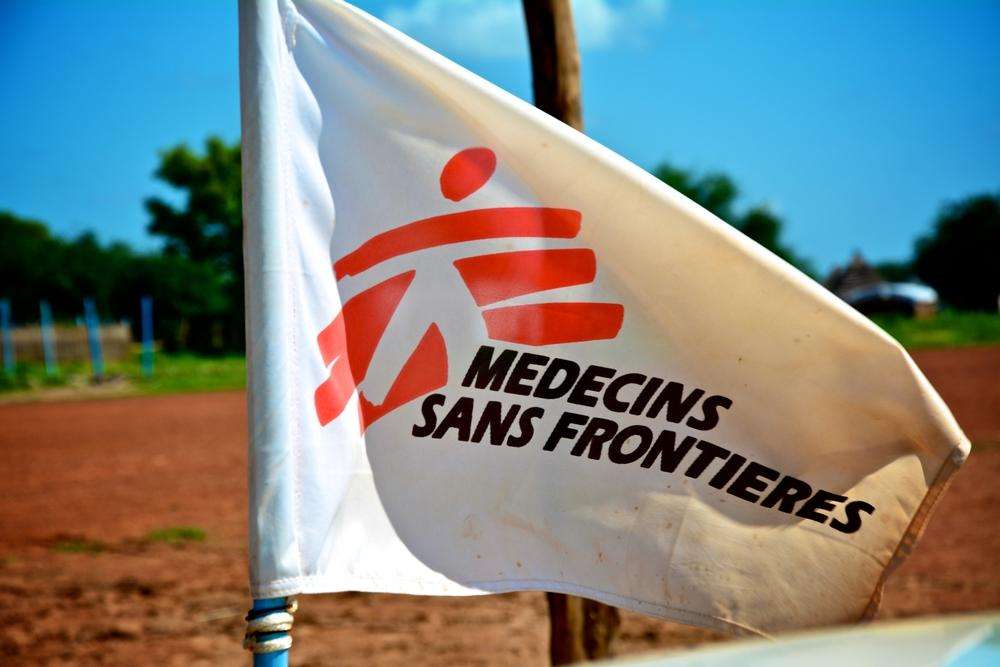A look back at MSF's work on HIV in Malawi
A decade after MSF started treating people living with HIV in Malawi's Chiradzulu district, it's clear that ARVs and proper care prolong life, prevent new transmissions, and allow people to regain their autonomy.
“When I found out my dead husband was HIV-positive, I cried. If my husband was HIV-positive, it meant that I was HIV-positive too. My children hadn’t completed their schooling. The youngest was seven years old. How was I going to take care of them? I thought I would die very soon and I would have to leave my children.”
Esnart, MSF patient since 2001, now MSF information officer
“Before 2001, we had no testing material and no ARV drugs. We could only treat opportunistic infections. We didn’t have any alternative. Most of the patients were dying. Then MSF came. They introduced the ARV drugs. We started with a very small number of patients, then we scaled up. From then on, the death rate of HIV patients started to reduce.”
Innocent Nuangulu, clinical officer for the Ministry of Health
“In 2001, I heard that in Chiradzulu an organisation named MSF had come. I heard that MSF would give drugs to prolong my life. This encouraged me to go for an HIV test knowing that I’d get medical help from MSF if found HIV-positive.”
Boniface, MSF patient since 2001
“I am 53 years old. I was one of the first patients to start taking ARVs in August 2001. Since then, my health has improved greatly. In 2000, I couldn’t go to work any more because I was sick. But since I started ARVs, the disease has retreated. I have started working again. My life has gone back to normal.”
Fred Minandi, MSF patient since 2001 and MSF peer counsellor
Malawi has one of the world's highest rates of HIV/AIDS, with 10.6 percent of people between 15 and 49 today affected by the virus. HIV/AIDS is the main cause of death in what should be the country’s most productive age group. The epidemic is the leading cause of death amongst adults, reducing life expectancy to just 43 years. The majority of HIV infection occurs amongst young people, and the rate of HIV prevalence is higher amongst women than men.
In 1997, Doctors Without Borders/Médecins Sans Frontières (MSF) started its program in the rural district of Chiradzulu, in the south of the country, which is home to more than 290,000 people, and where today 14.5 percent of the population between 15 and 49 is infected with the HIV virus (17.5 percent of women and 11 percent of men). At that time, as no antiretroviral (ARV) drugs were available in the country until 2001, MSF was focusing on the treatment of opportunistic illnesses and palliative care at the district hospital and on prevention of infections.
In 2001, MSF began providing ARV treatment and follow-up at the district hospital, giving priority to the sickest patients. The first patients were placed on ARV drugs in August 2001.
The program was designed to demonstrate that ARV drugs could be provided in low-resource rural contexts, where they would prolong life and allow people to regain their autonomy. The aim was also to show that those patients are able to follow a life long treatment. Although no one believed this could be achieved, MSF took up the challenge. Since MSF’s ARV treatment program began in 2001, more than 52,000 patients were followed by MSF teams. Today, more than 55 percent of the patients who started treatment in 2001 are alive and healthy
As of September 2011, MSF is still following 30,000 HIV positive patients in the project. Not all patients are eligible for treatment; only those with a severe reduction of their immunity need to start treatment. Today 22,000 patients are receiving ARV treatment in Chiradzulu, 12.5 percent of whom are children. Over the last three years, approximately 3,000 new patients were integrated in the project annually. The Chiradzulu program is one of MSF’s largest HIV programs, with an average of 175,000 medical visits and 50,000 counseling sessions held every year.
MSF was a pioneer in this field, and MSF’s patient cohort is the most longstanding in the country. The project has already shown that when treatment is adapted to local conditions and supported by human and financial resources, rural health systems can effectively provide comprehensive HIV/AIDS care. The project has allowed many more people who were bedridden to get back on their feet and resume productive lives.
To read more about the activities and approaches of MSF’s HIV programs in Malawi, please see the newly released report, “Ten Years That Changed My Life.”




